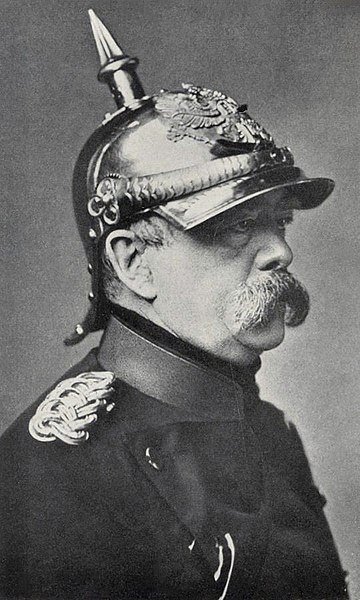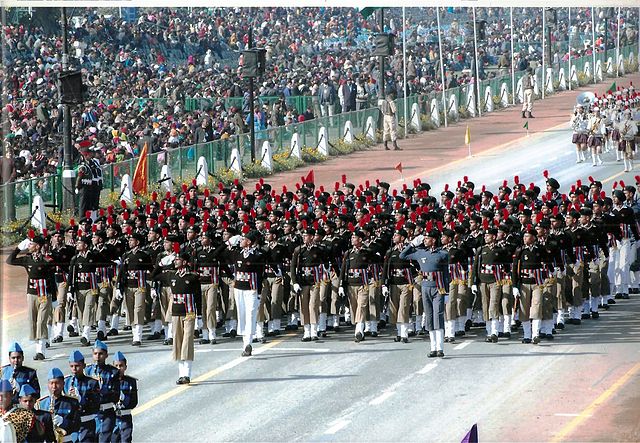Militarism is the belief or the desire of a government or a people that a state should maintain a strong military capability and to use it aggressively to expand national interests and/or values. It may also imply the glorification of the military and of the ideals of a professional military class and the "predominance of the armed forces in the administration or policy of the state".
Prussian (and later German) Chancellor Otto von Bismarck, right, with General Helmuth von Moltke the Elder, left, and General Albrecht von Roon, centre. Although Bismarck was a civilian politician and not a military officer, he wore a military uniform as part of the Prussian militarist culture of the time. From a painting by Carl Steffeck.
Otto von Bismarck, a civilian, wearing a cuirassier officer's metal Pickelhaube
Militarism in Nazi Germany
Military parade in India
A stratocracy, also called stratiocracy, is a form of government headed by military chiefs. The branches of government are administered by military forces, the government is legal under the laws of the jurisdiction at issue, and is usually carried out by military workers.
Portrait of Robert Filmer, the first person to use the term stratocracy in English.
Senior General Than Shwe who was the Chairman of the State Peace and Development Council from 1992 to 2011.
President Dwight D. Eisenhower famously warned U.S. citizens about the "military–industrial complex" in his farewell address.
Gamal Abdel Nasser (right) and Mohamed Naguib (left) during celebrations marking the second anniversary of the 1952 revolution, July 1954








